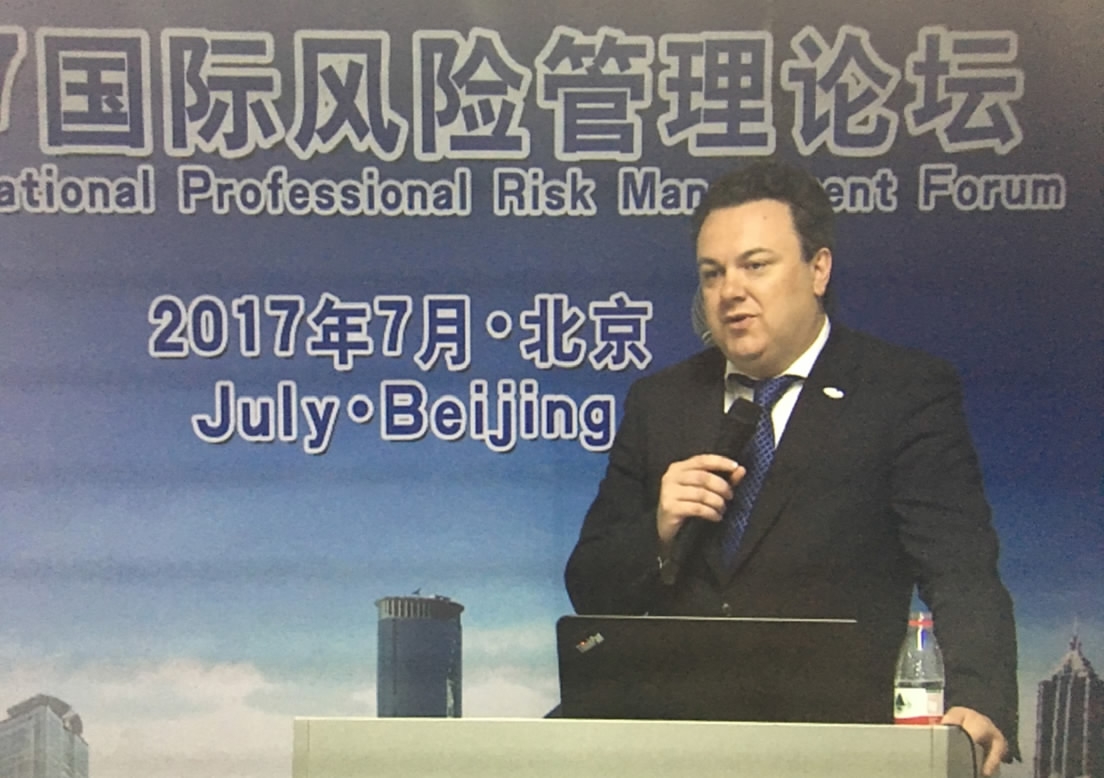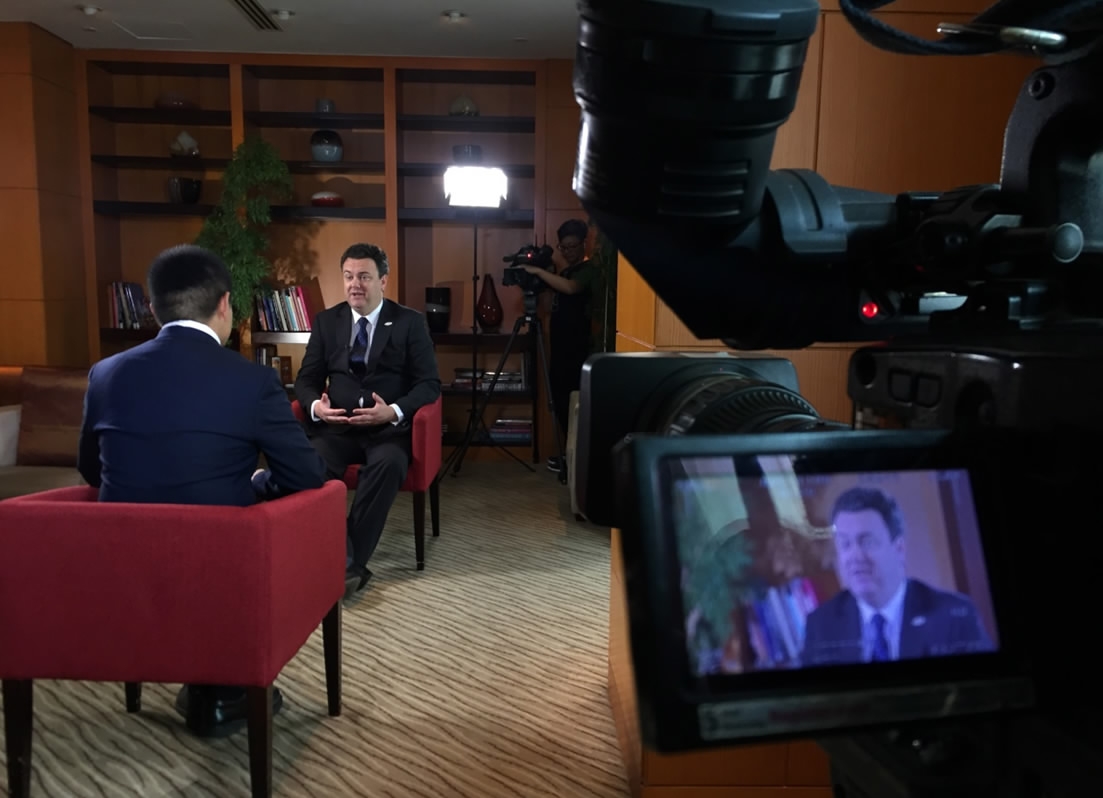
Business
17:10, 18-Jul-2017
PRMIA on fintech risk management: Business model comes before technology

By CGTN’s Luo Yu
The world's leading risk management education institution, the Professional Risk Managers' International Association (PRMIA), has partnered with China's Southwestern University of Finance and Economics and PuRui HuaTong Education in a bid to promote research and training in fintech risk management in China.
The emergence of the financial technology or fintech sector, which includes big data, artificial intelligence, cloud computing, and consumer finance, has been largely welcomed, but comes with risks and challenges.

Justin McCarthy delivered a speech at the 2017 International Professional Risk Management Forum organized by Southwestern University of Finance and Economics and PuRui HuaTong Education in Beijing. /CGTN Photo
Justin McCarthy delivered a speech at the 2017 International Professional Risk Management Forum organized by Southwestern University of Finance and Economics and PuRui HuaTong Education in Beijing. /CGTN Photo
Justin McCarthy, chairman of the Global Board at PRMIA, said many companies in this day and age are exposed to more cyber risks in their fintech operations.
"Also, there are more credit risks to manage. Companies need to remember that it’s the business model that really counts. Although technology advances, you still have to sell and market your products," he added.
McCarthy told CGTN that Western countries offer some lessons for China to better regulate and supervise the fintech industry.
"Regulators must allow some level of innovation, but eventually they have to step in," said McCarthy.
The best example is the Bank of England according to McCarthy, as it built a fintech "community" where a wide range of fintech businesses are engaged across the financial services sector to facilitate to progress legal and regulatory issues as fintech is ever changing and new problems and challenges continuously arise.
McCarthy said another isue for China to be concerned about is RegTech, or regulatory technology, where companies team up with financial institutions and regulatory authorities to share information and make policies via technologies such as cloud computing and big data.

Justin McCarthy, chairman of the Global Board at PRMIA, spoke to CGTN about fintech risk management in China. /CGTN Photo
Justin McCarthy, chairman of the Global Board at PRMIA, spoke to CGTN about fintech risk management in China. /CGTN Photo
Speaking of combating fraudulent activities in fintech, McCarthy believes that machine learning and artificial intelligence can be applied to identify abnormal transactions and help people prevent scams from happening in the future.
Chinese regulators have been closely monitoring developments in the fintech industry. Earlier this year, the People's Bank of China, the country's central bank, set up a committee to enhance research, planning and guidance on financial technology. Meanwhile, in the first half of this year, China's big four banks tied up with the country's big four IT giants -- Baidu, Alibaba, Tencent and JD. In late June alone, three agreements came within just one week, as Industrial and Commercial Bank of China signed with JD.com, Agricultural Bank of China with Baidu and Bank of China with Tencent. Those deals added to the partnership inked in March between China Construction Bank and Alibaba's Ant Financial.
Related stories:

SITEMAP
Copyright © 2018 CGTN. Beijing ICP prepared NO.16065310-3
Copyright © 2018 CGTN. Beijing ICP prepared NO.16065310-3